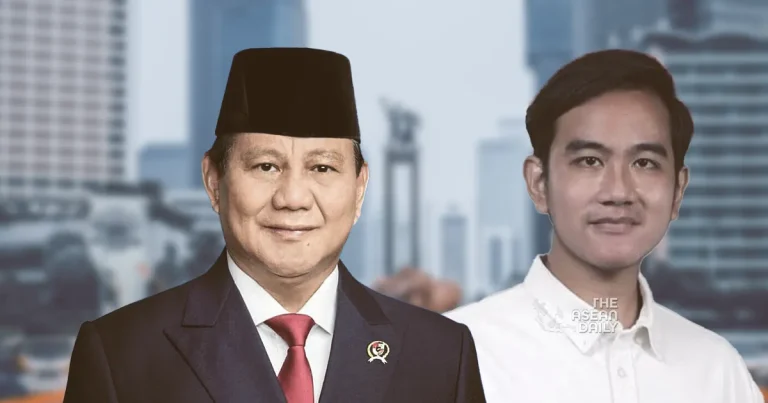4-11-2023 (JAKARTA) As Indonesia gears up for the 2024 presidential election, Prabowo Subianto’s selection of Joko Widodo’s eldest son, Gibran Rakabuming Raka, as his running mate has generated much interest. Subianto likely hopes to capitalise on outgoing President Jokowi’s popularity to bolster his own chances against other contenders. However, this gambit is not without risks and could potentially backfire.
Jokowi has enjoyed tremendous popularity throughout his tenure, with approval ratings consistently above 80%. He leverages an extensive volunteer network and has now tacitly endorsed Subianto through his son. Subianto will be aiming to secure votes in Jokowi’s strongholds like Central and East Java, where he was trounced in 2019. His own support bases lie in West Java and Banten.
Clearly, the 72-year old is banking on the 36-year old Raka’s appeal to both the youth and minority voters. Raka’s prolific social media presence and background as an entrepreneur and mayor paint him as a relatable public figure. Moreover, his father’s unwavering support among minority communities, consolidated after the anti-Ahok protests, is expected to transfer to some extent. Raka’s own brother leads the PSI, which actively campaigns among eastern minorities.
In a three-way race, former Jakarta governor Anies Baswedan seems unlikely to progress beyond the first round. The PKS and other Islamic parties allying with him may then pragmatically side with Subianto over the PDI-P’s Ganjar Pranowo. However, assumptions of an unassailable Subianto-Raka partnership may be optimistic.
Raka’s selection has evoked criticism over dynastic politics and nepotism. He only became eligible for vice-president after a Constitutional Court ruling lowered the minimum age, and his uncle heads the same Court. Such perceptions of privilege could dampen enthusiasm among even Jokowi’s supporters. His inexperience also opens him to attacks by the PDI-P backing Pranowo.
Jokowi’s popularity may not seamlessly translate into votes, especially with limited opposition previously. Candidates like Pranowo could mount significant challenges in the PDI-P’s strongholds of Central and East Java. Jokowi’s camp recognises this, evidenced by the PSI’s prominent “Jokowi-ism” campaign. But the PSI itself lacks parliamentary representation currently.
Even if victorious, a Vice President Raka may end up sidelined by Subianto, given the position’s lack of constitutional authority. The current Jokowi-Subianto alignment itself is seen largely as a symbolic measure to promote post-election unity. With the PSI in parliamentary opposition, Jokowi would have limited influence.
The rift between Jokowi and the PDI-P, which propelled his initial rise, could also widen. Ultimately, Raka’s selection represents a gamble for both Subianto and Jokowi, with no guarantee the benefits of Jokowi’s popularity will outweigh the risks. Much depends on Raka’s own performance and whether this alliance outlasts the campaign or translates into governance.




